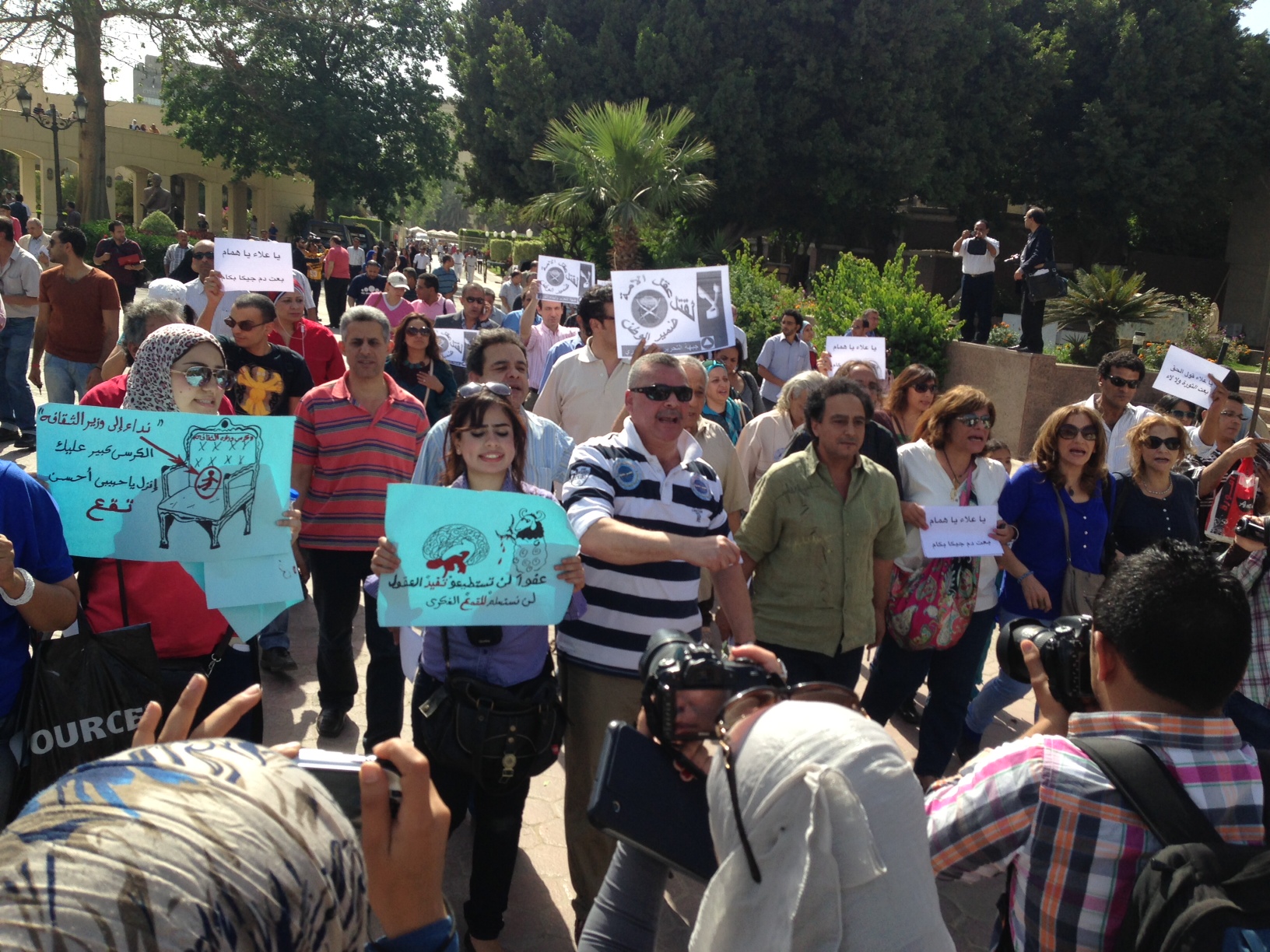 Libyan militant group “State of Barqa” released a gallery of pictures online of alleged Egyptian workers after being “liberated from bandits” in the Libyan city of Nufaliya.
Libyan militant group “State of Barqa” released a gallery of pictures online of alleged Egyptian workers after being “liberated from bandits” in the Libyan city of Nufaliya.
The pictures showed masked militants allegedly returning passports and identification papers to a group of men, with all of the official papers apparently genuine.
Other pictures show the “liberated Egyptians” waving the black “Islamic State” flag. The group also says that they provided trucks to deliver the men. The authenticity of the pictures is yet to be confirmed.
Nufaliya is one of the cities which the “Islamic State” (IS) affiliate “State of Barqa” controls. Lying on the Eastern side of Sirte, Nufaliya was also reported to have witnessed the kidnapping of three Christians, one of whom is Egyptian.
“State of Barqa” released three scans of passports which were allegedly owned by the three kidnapped. The group called the kidnap victims “crusaders”, a term used by extreme Islamists to refer to Christians.
An Egyptian Foreign Ministry spokesperson told Daily News Egypt that the ministry is currently in contact with the involved Egyptian and Libyan authorities to confirm and follow up on the incident. Local Libyan media, however, cited Libyan Army spokesperson Mohamed Hegazy as confirming the incident.
However, Al-Azhar condemned the incident, calling upon the international community to intervene to liberate the kidnapped individuals, whilst standing in solidarity with their families.
“State of Barqa” was established in March 2014 in Derna, and pledged alliance to “Islamic State”. Last year the group rallied in many villages, raising Islamist flags, wearing military uniforms, driving pickup trucks, and showing heavy weapons in defiance of the Libyan government, inviting volunteers from the town to join its forces.
Since its establishment, the militia has entered a violence dispute with Al-Qaeda affiliated groups, leading to the loss of Derna, one of IS’s main strongholds in Libya
The militants, who have built a presence in Sirte, which was heavily bombed during campaigns by the Libyan army, blames Islamists and Al-Qaeda affiliates in Libya for not executing jihad to the full extreme to fight the “army of infidels”.
Violence in Libya surged in May 2014, when retired General Khalifa Haftar began a campaign to root out Islamist militias from Benghazi. At the time, Libya’s government denounced his actions and declared him an outlaw. Haftar is now a commander of what is left of the Libyan army, which is aligned with the Tobruk-based government.
Haftar, who led ground forces in the 2011 uprising that toppled former Libyan president Muammar Gaddafi, sees himself as the chief of the “national armed forces”. The national army fragmented after Gaddafi’s fall, but some of its forces, including the air force, are now under Haftar’s control.
Egypt’s Foreign Ministry has repeatedly warned citizens against going into Libya during the country’s ongoing turmoil.
Egyptians constitute a large portion of the labour force in Libya, and have been caught up in militia fighting over the past four years since the Libyan Uprising. Kidnappings of Egyptians and other migrants to Libya by militants are a common occurrence in the unrest.
Twenty Coptic Egyptians were kidnapped and executed at the beginning of the year in the city of Sirte, on Libya’s north coast.
Additional reporting by Emir Nader


